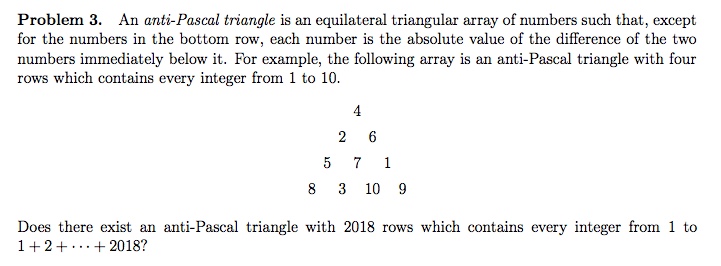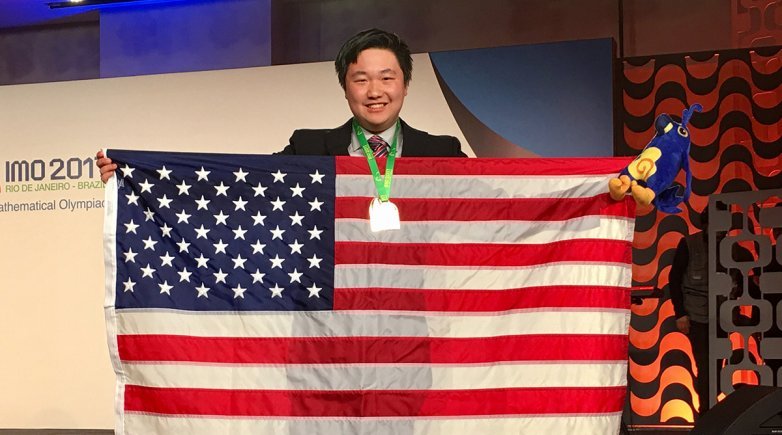Strength in numbers
James Lin's perfect score extends Exeter's tradition of success at the International Mathematical Olympiad.
What does 594 competitors from 107 countries crunching six brain-bruising math problems in nine hours add up to?
No. 1 for James Lin.
The 2018 Exeter graduate steered the United States team to first place at the 59th International Mathematical Olympiad last week in Cluj Napoca, Romania, turning in one of only two perfect individual scores in the two-day competition.
The gold medal is the second for Lin. Last year, he ranked sixth individually at the competition, helping the U.S. to a fourth-place finish.
Exeter’s Thomas Guo ’21 earned a silver medal while representing his native Canada. The Canadian team finished 16th.
The IMO recognizes team success, but the participants work on the problems individually. Each has nine hours — split into two sessions over two days — to crack six problems, with judges grading work on each problem on a zero-to-seven scale.
Problem No. 3 proved particularly challenging; 548 of the 594 participants scored a 0. Lin, bound for MIT in the fall, chalked up a perfect 7 on the question that featured an anti-Pascal triangle.

Making noise with numbers is an Exeter tradition. Three of the nine perfect scores at the IMO over the past four years belong to Exonians. Alex Song ’15 completed a record-setting career at IMOs with the lone perfect score of the 2015 competition. The next year, Yuan Yao ’17 helped the U.S. win the team title with perfect marks.
A commitment to STEM
The math competition success reflects a strong commitment to STEM disciplines at PEA. Here are some stories about other Exonians challenging themselves and making a difference in the fields of science, technology, engineering and math:
Building a power plant on a chip
Conversations about clean, renewable sources of energy tend to focus on solar and wind power. But Jared Schwede ’03 has his eye on another option: thermionics, the conversion of heat into electricity on a chip not much bigger than a postage stamp. https://www.exeter.edu/people/jared-schwede
Looking up at the stars
Sipping hot cocoa before dawn at the Grainger Observatory during her upper year, Aomawa Shields ’93 didn’t mind the cold or even waking up at 4 a.m. to join her physics classmates in observing Jupiter’s moons with a telescope. “What originally drew me to [astronomy] was just being outside and looking up at the stars.” https://www.exeter.edu/people/aomawa-shields
Everything’s an unknown — till it’s discovered
Ask Bridgette Han ’18 to talk a little about herself she seems distracted, quickly turning to polymers and amino acids and her fascination with degenerative diseases instead. For Bridgette, it’s the work that counts. https://www.exeter.edu/people/bridgette-han
Maker Fest: Hand-to-hand collaboration
Learning to make, to experiment hands-on, to fail and recover — it’s all part of the growing maker culture at Exeter that is expanding the traditional Harkness classroom model of collaborative learning to new venues and rewards. https://www.exeter.edu/news/exeter-hosts-48-hour-maker-fest
Meet the young physicists who wowed the judges
We caught up with the one senior and five uppers who snared top honors at the recent United States Invitational Young Physicists Tournament competing against 14 high school teams from the U.S., China and Tunisia.


